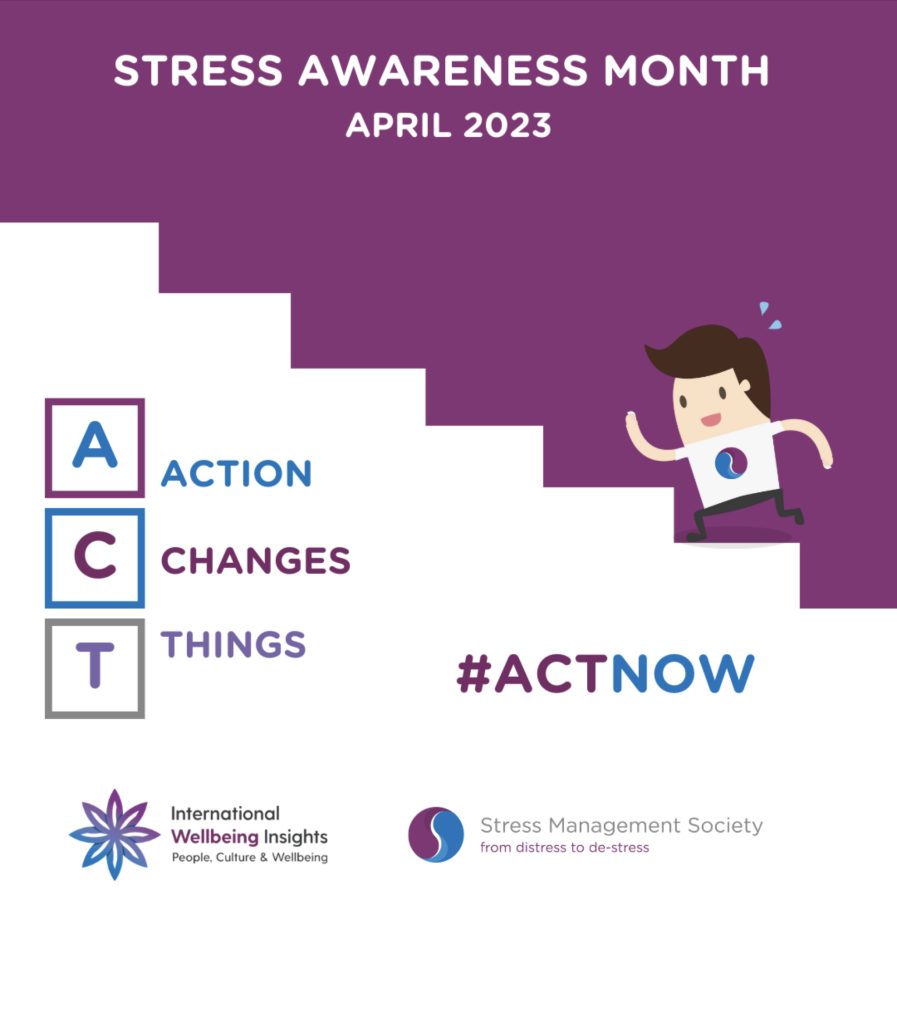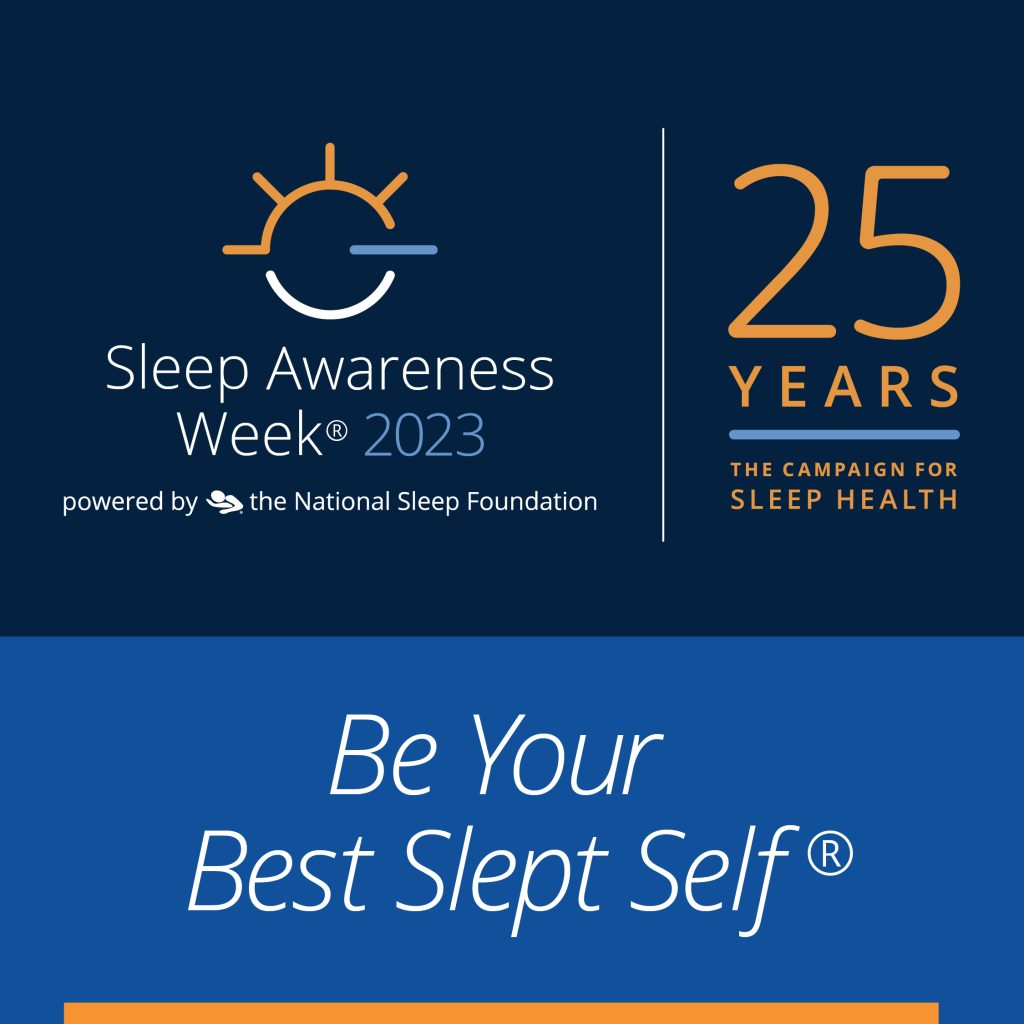Published: April 17, 2023
 Stress Awareness Month is a yearly event observed in April to raise awareness about the impact of stress on our health and wellbeing. The main objective of this event is to educate people about the causes, effects, and coping mechanisms of stress.
Stress Awareness Month is a yearly event observed in April to raise awareness about the impact of stress on our health and wellbeing. The main objective of this event is to educate people about the causes, effects, and coping mechanisms of stress.
During Stress Awareness Month, individuals and organizations around the world organize various activities such as workshops, seminars, webinars, and social media campaigns to promote awareness about stress management. The event aims to encourage people to take action to reduce stress in their lives by adopting healthy lifestyle habits and seeking professional help when needed.
The event was first observed in 1992 by the Health Resource Network (HRN) in the United States. Since then, it has been recognized by various organizations, including mental health associations, wellness centers, and universities, as a way to raise awareness about stress and its impact on our physical and mental health.
In summary, Stress Awareness Month is an annual event that seeks to educate people about stress, its causes, effects, and coping mechanisms, and encourages individuals to take steps to manage stress in their lives.
Did you know that March 12–18 is National Sleep Awareness Week ®
Sleep Awareness Week is an annual campaign that aims to raise awareness about the importance of good sleep habits and the impact of sleep on overall health and well-being.

Why is Sleep Important?
One in five Americans sleeps less than six hours a night—a trend that can have serious personal health consequences. Sleep deprivation increases the risk for a number of chronic health problems, including obesity, diabetes, and heart disease.1 As anyone who has gone without sleep knows, a lack of rest is an impediment to one’s productivity at work, personal happiness, and overall health.
Sleep is the single most effective thing we can do to reset our brain and body health each day. How you feel while you are awake depends in part on what happens while you are sleeping. During sleep, your body is working to support healthy brain function and maintain your physical health.
If you have trouble sleeping1
Check for underlying causes. Some conditions or medications may be interfering with your sleep patterns. Treating a condition or adjusting a medication may be all it takes to restore better sleep.
Practice good sleep hygiene. Use your bed for sleep and sex only, block as much noise and light as possible, go to bed and wake at the same times each day, and get out of bed if you haven’t fallen asleep within 20 minutes.
Nap if needed. If you like to nap, get your daytime shut-eye in midday. Naps late in the day can interfere with sleep later. If your problem is difficulty getting to sleep at night, then not napping can make you sleepier at bedtime and more likely to stay asleep.
Exercise earlier, not later. Exercise stimulates the body and brain, so make sure you finish exercising at least three hours before turning in.
Watch your diet. stay away from foods that cause heartburn. Ban caffeine-rich food and drinks (chocolate, tea, coffee, soda) at least six hours before bedtime. Don’t drink alcohol for at least two hours before bed.
See a sleep specialist. If your own efforts aren’t working, you’ll want the help of a sleep professional to both diagnose your problem and propose behavioral and possibly drug treatments.
1 Harvard Medical School https://www.health.harvard.edu/topics/sleep
Published: December 7, 2022

© iStockphoto
Did you know?
According to Vinnidhy Dave, DO, director of medical pain management at the Hospital for Special Surgery in New York City – between 15 and 40% of patients with chronic pain can have brain fog.
Living with brain fog is a unique challenge. It comes hand-in-hand with many chronic illnesses, but isn’t always so apparent to those around you.
So what is Brain Fog?
A study published in the Frontiers of Neuroscience describes brain “fog” as a constellation of symptoms that include reduced cognition, inability to concentrate and multitask, as well as a loss of short and long term memory. It can be accompanied by a variety of other symptoms, such as fatigue, irritability, and difficulty completing tasks. Brain fog can be caused by a variety of factors, and it can have a significant impact on an individual’s quality of life.
Brain Fog often arrives with pain, fatigue, and new medications.
Brain fog is harder to diagnose and treat because there is no medical consensus around it, it isn’t recognized as a medical or psychological condition and there is no test or measurement for it, although there are tests to measure the cognitive impairment that is associated with it.
So it isn’t a medical condition per se, rather a symptom of other medical conditions. [continue reading…]

 Stress Awareness Month is a yearly event observed in April to raise awareness about the impact of stress on our health and wellbeing. The main objective of this event is to educate people about the causes, effects, and coping mechanisms of stress.
Stress Awareness Month is a yearly event observed in April to raise awareness about the impact of stress on our health and wellbeing. The main objective of this event is to educate people about the causes, effects, and coping mechanisms of stress.

